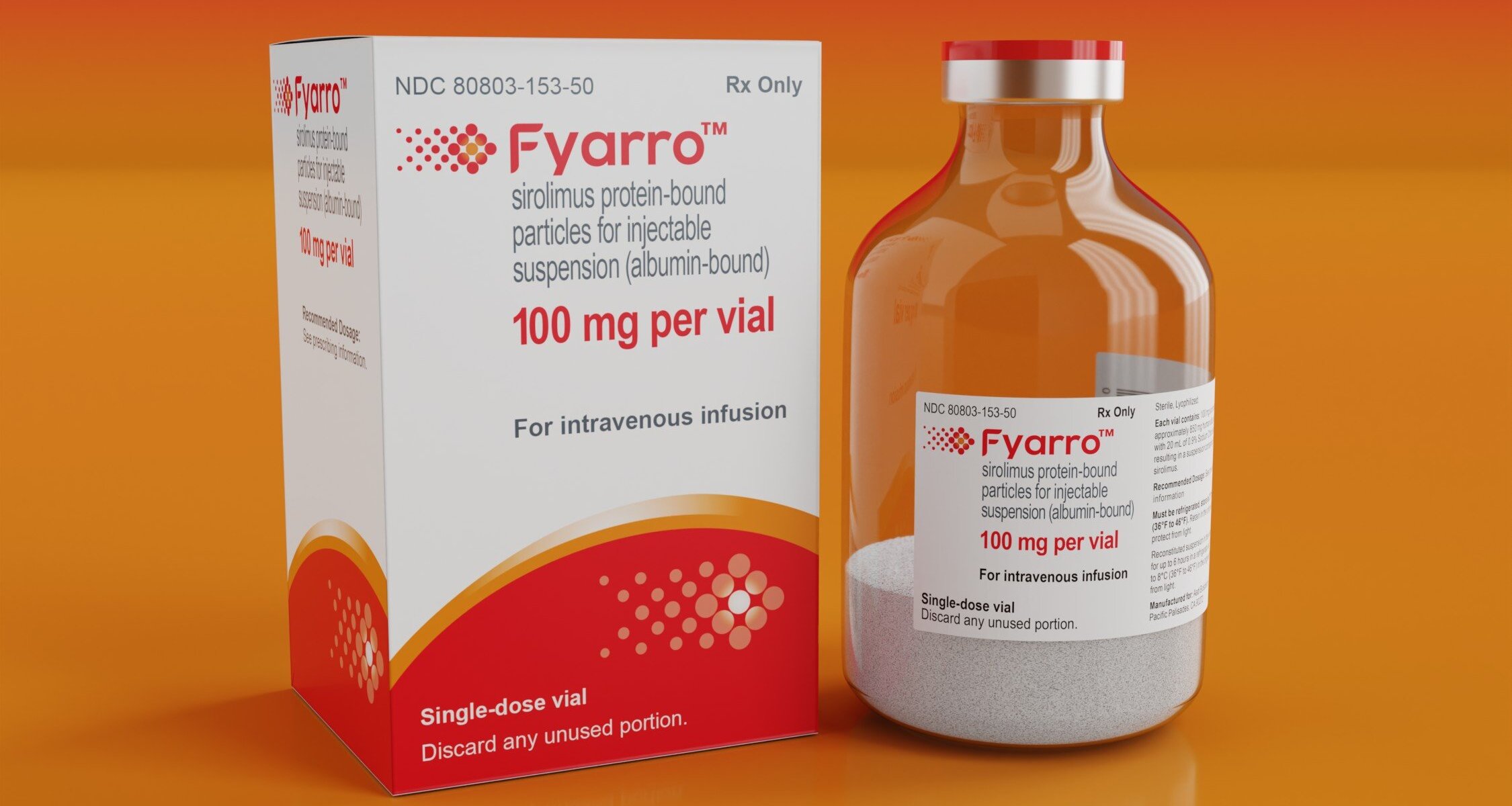The U.S. Food and Drug Administration (FDA) announced the approval of Fyarro (sirolimus protein-bound particles for injectable suspension) for the treatment of locally advanced unresectable or metastatic malignant perivascular epithelioid cell tumor, according to multiple sources.
Developed by California-based biopharmaceutical company Aadi Bioscience, Fyarro is a mammalian target of rapamycin (mTOR) inhibitor.
Fyarro is the first approved drug for adults with malignant perivascular epithelioid cell tumor – one of the rare and aggressive forms of sarcoma, which occurs more frequently in women.
Sarcoma is a type of cancer that arises from transformed cells of mesenchymal (connective tissue) origin. Connective tissue includes bone, cartilage, fat, vascular, or hematopoietic tissues. Sarcomas may occur in any of these types of tissues.
In the United States, approximately 100 to 300 people are diagnosed with this condition, with an estimated survival of 12 to 16 months.
The FDA’s approval is based on the findings of the Phase 2 trial that included 31 patients. The drug showed an overall response rate of 39%, with two patients achieving a complete response.
More than 10% of patients experience adverse events such as stomatitis (oral inflammation), rash, fatigue, and infections. Some of these patients developed lymphocytopenia, increased blood glucose levels, and decreased potassium.
Principal investigator of the trial Dr. Andrew Wagner said in an Aadi Bioscience-issued press release, “The approval of Fyarro … will provide physicians with a new weapon for treating patients with this rare disease.”
“In our AMPECT trial, Fyarro demonstrated durable responses in mTOR inhibitor-naive patients with locally advanced unresectable or metastatic [perivascular epithelioid cell tumor], with an acceptable and manageable safety profile,” added Dr. Wagner, who is a senior oncologist at Dana-Farber Cancer Institute.
Dr. Robert Maki of the University of Pennsylvania said the FDA approval of Fyarro represents “a significant advance” for treating metastatic malignant perivascular epithelioid cell tumor.
He said, “Patients living with locally advanced or metastatic [perivascular epithelioid cell tumor] are in urgent need of new treatment options.”
“I am encouraged that Fyarro provided a clinically meaningful benefit in overall response rate, with some patients responding for up to several years. I am pleased to have Fyarro as a new therapeutic option to offer my [patients with advanced malignant perivascular epithelioid cell tumor],” added Dr. Maki.
The article appeared on Healio, a medical news website for health care specialists.





















